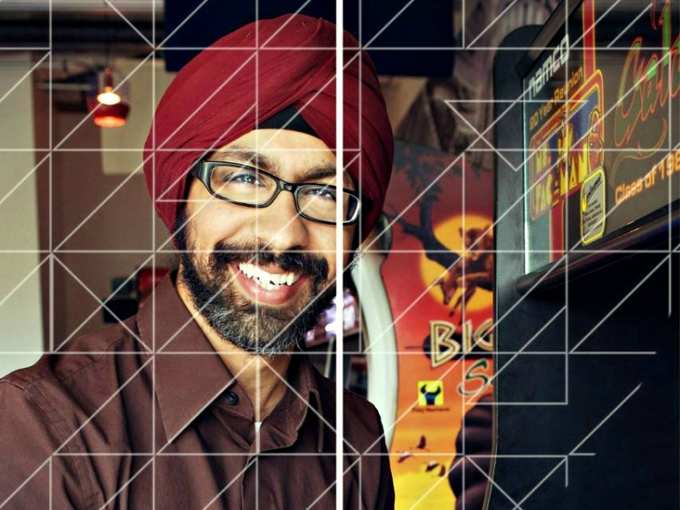
An engineering graduate from NIT-Kurukshetra, masters in Electrical Engineering from University of Wyoming and MBA from Wharton, he was working with Google before Flipkart roped him in as the Product Head. He is widely believed to bring more focus on the Flipkart app.
A year on, he’s stepped down from his role in Flipkart, and is looking to start something of his own in the Valley, but it'll have some Indian connection, he promises.
Business Insider sat down with this 38-year-old Valley veteran (wow, that rhymes) for a candid chat.
Not every Indian kid gets to be at Wharton and Google. How did it happen for you?
If you look at my career, it’s a classic Silicon Valley template. Undergrad here, grad school there, worked in a bunch of companies, a startup along the way, and so on. Many Indians are successful in the Valley and across the world with the same template.
Much of my success is attributed to luck and chance. Everything doesn’t happen because you’re smart and accomplished. You take leaps of faith, and luck happens. You have to put yourself in that place to get lucky. A lot of people don’t try.
I had a cushy job at Cadence. I earned well, and didn’t have to work too hard. I threw it all away, and decided to go to business school. Took a quarter million in loan and went to Wharton.
I was lucky to get into Wharton. I was rejected for three years, but the act of trying to get in probably helped me grow more than what I learnt in business school itself.
Google was also luck. I didn’t know what to do at that point, and knew somebody who was working there. Somehow got an interview, and got in.
My job was to build apps, and I had to go to Canada to do that. Very few wanted to move there from Mountain View, and I put my hand up. I got the job and it turned out to be an important one for Google.
What’s your take on the Indian media and how they’ve treated the Indian startup ecosystem vis-à-vis what you’ve seen in the Valley?
To be honest, I think the Indian media is a bit of a circus.
There are some good people, but way too much is written without any substantiation. Whenever you see an article in a leading daily with ‘unnamed sources’, you have to question how they put these things together. Nobody even has the courtesy to call and ask.
Tabloid journalism happens in the US and UK too. But I expect mainstream media to be more ethical about what they write.
Secondly, I think the Indian startup scene gets a lot of scrutiny, and rightfully so. India and Indians have realized this is going to be very incidental to their future. However, they should focus more on strategy than personality.
Does this hero worship not happen in the Bay Area?
This kind of conversation does not happen as much in the Bay Area. There are gossip columns however.
I remember waking up one day after partying really hard, and went to a Burrito place, and Larry Page(Co-founder, Google) was behind me, having some Burritos. Nobody came up to him. They let him be.
In general, the cult of personality is little less there. It maybe because there are too many that are successful, or because the media is more mature there.
How long can it take for Bangalore to become like the Bay Area?
It takes way less time to put together a company there.
Bay Area is like a cookie cutter machine for startups. There are lawyers, startup consultants and office managers who know exactly what to do. There are places where you can start your office for free.
If we decided to start something today, we’ll have a company, company name, incorporated, office, staff, healthcare and more in less than a week.
In India, it’s a little bit harder. However, it’s become easier, and the government can always work to make it much easier.
Your take on the Indian startup ecosystem
India has the largest volume of young entrepreneurial people in the world today. The energy here far outstrips that of the Bay Area. However, this ecosystem can do with more role models and mentors.
In the Bay Area, we always had somebody to handhold and teach us. Many people here who have that intense energy don’t have enough mentors who can help them transform that into great companies.
It’s important to have an ecosystem of support and mentorship in the country. That’s what Valley already has. That’s why more billion dollars come out of there than here.
I think in the next decade you’re going to see a Google-like company come out of India, and it’s dumb to not be a part of this.
That’s why I do my office hours, play advisor to a few companies, and might invest a bit also.
